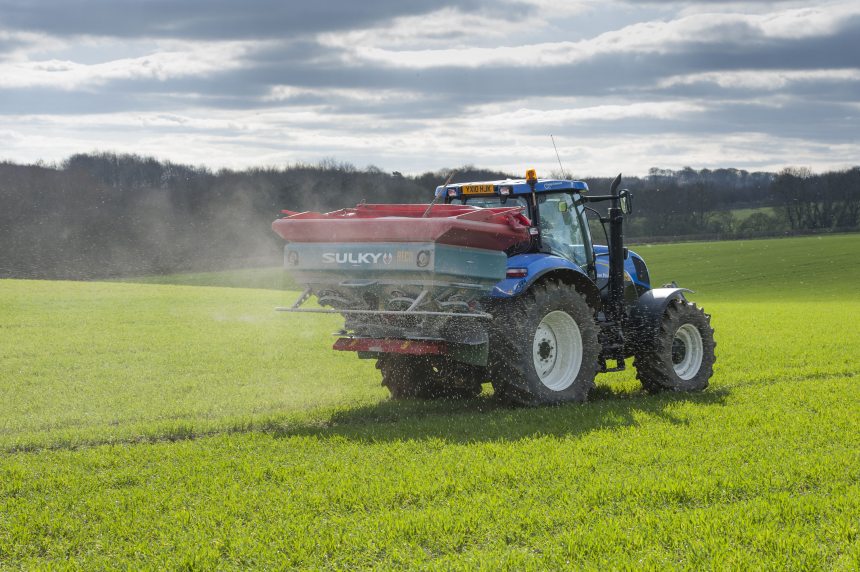
The NFU has urged Defra to adopt an 'industry-regulated approach' to solid urea fertiliser rather than a total ban which would have a 'huge impact' on farmers' ability to produce food.
The union has presented a 'viable alternative' to Defra's consultation looking at ways farmers in England can reduce ammonia emissions from urea fertilisers.
Defra says the emissions are harmful to natural habitats as well as to human health, with 87% coming from agriculture, of which 18% is attributed to inorganic fertiliser application.
The government has committed to reduce the pollutant by 8% of 2005 levels by 2020, and a 16% reduction by 2030.
Three options have been presented in Defra's consultation, which closed for responses on Tuesday (26 January).
These include a total ban on solid urea fertilisers, or a requirement to stabilise them with the addition of a urease inhibitor - a chemical that helps slow the conversion of urea to ammonium.
For the third option, Defra is looking at a requirement to restrict the spreading of solid urea fertilisers so they can only be used from 15 January to 31 March.
But the NFU has warned farmers that the government’s preferred option was for a total ban.
The union said an industry-regulated approach to the use of solid urea fertiliser was 'vital' to help grow the nation’s food, while cutting emissions at the same time.
Under its 'viable alternative', farmers would be encouraged to use solid urea between 15 January and 31 March, measurable through a recommendation in Red Tractor standards or a Fertiliser Advisers Certification and Training Scheme (FACTS) qualification.
Outside of this period, inhibitor use would be encouraged on both liquid and solid urea fertilisers through a wider industry ambition of improving NUE and nutrient management.
"We believe this option will also minimise costs to farmers while ensuring an acceptable emissions reduction is achieved for Defra, in a way that also allows farming to achieve other important ambitions around productivity and reaching net zero by 2040," said Tom Bradshaw, NFU vice president.
“No-one disputes that farming has a part to play in reducing emissions and farmers are already working hard towards this goal by using low emission spreading equipment, for example, improving livestock diets and covering slurry stores.
“This is why the NFU is urging Defra to look at the bigger picture as part of this consultation instead of taking decisions in isolation, given the huge impact it will have on British farming."
Figures show that UK ammonia emissions have fallen by 14% since 1990, while the use of nitrogen fertilisers and the nitrogen balance in soils fell by 33% and 40% respectively.
